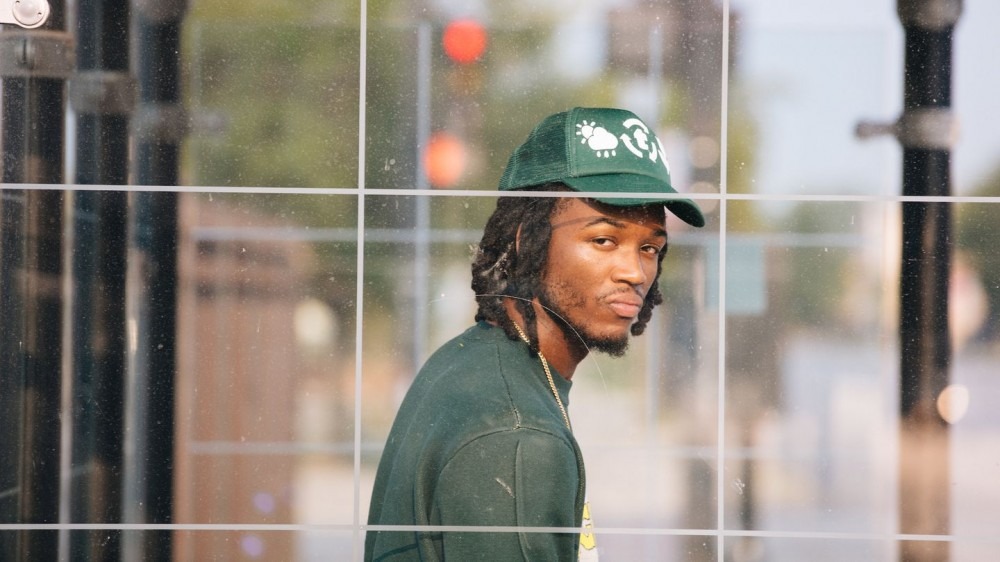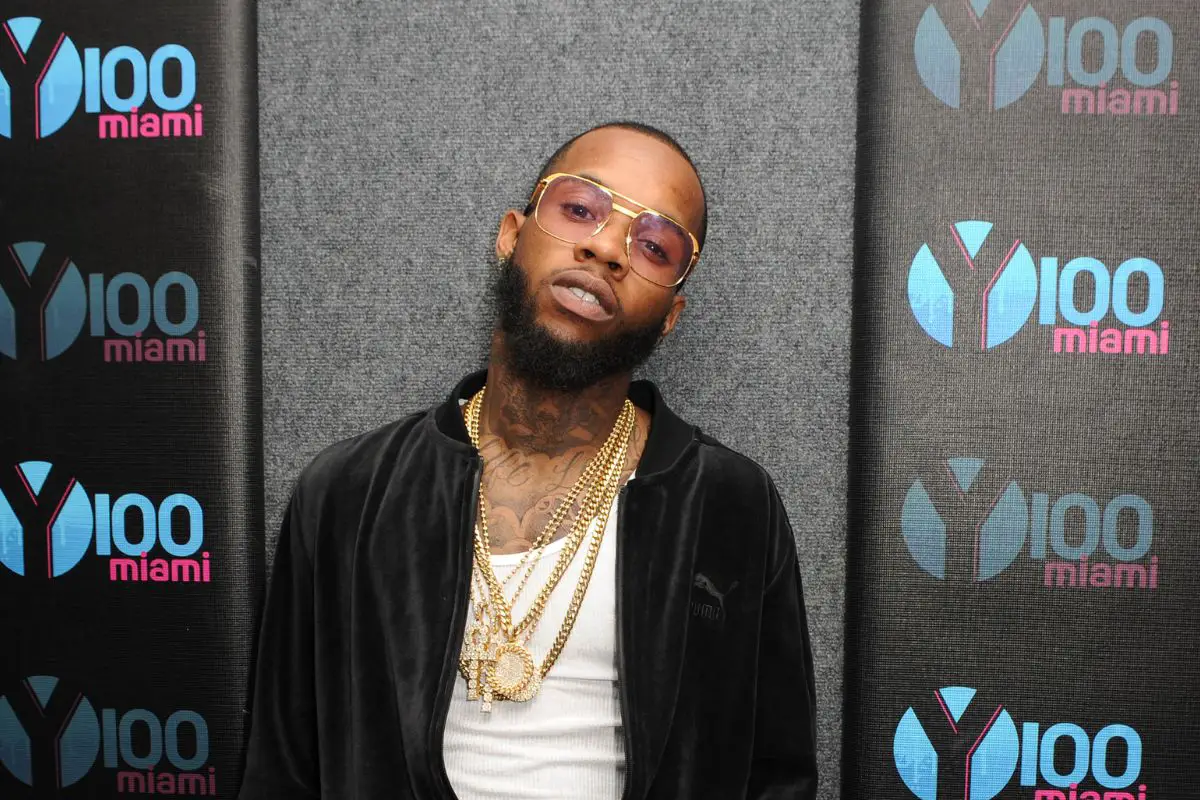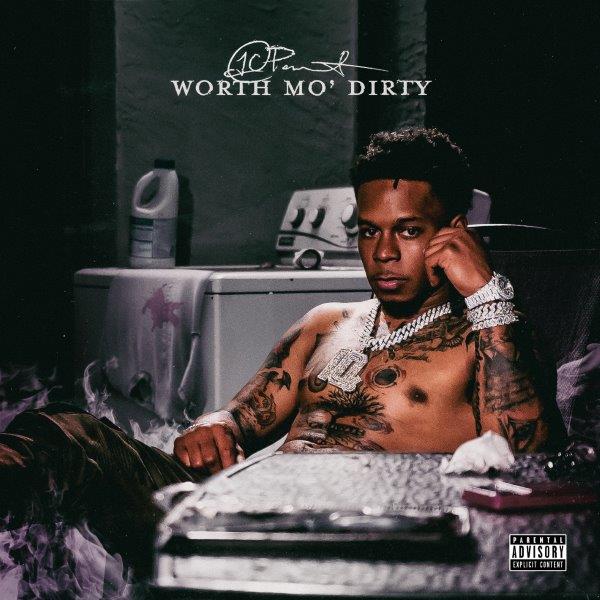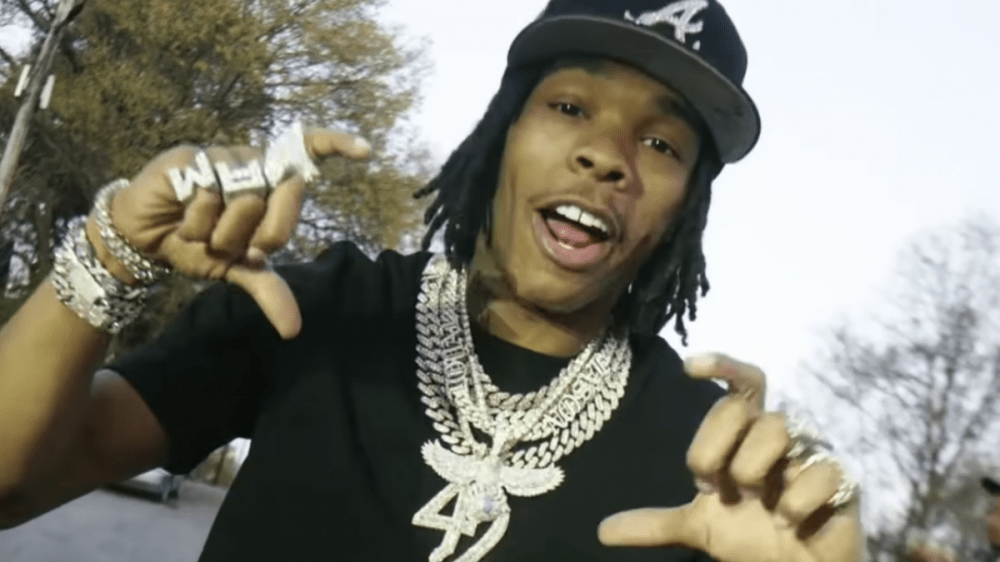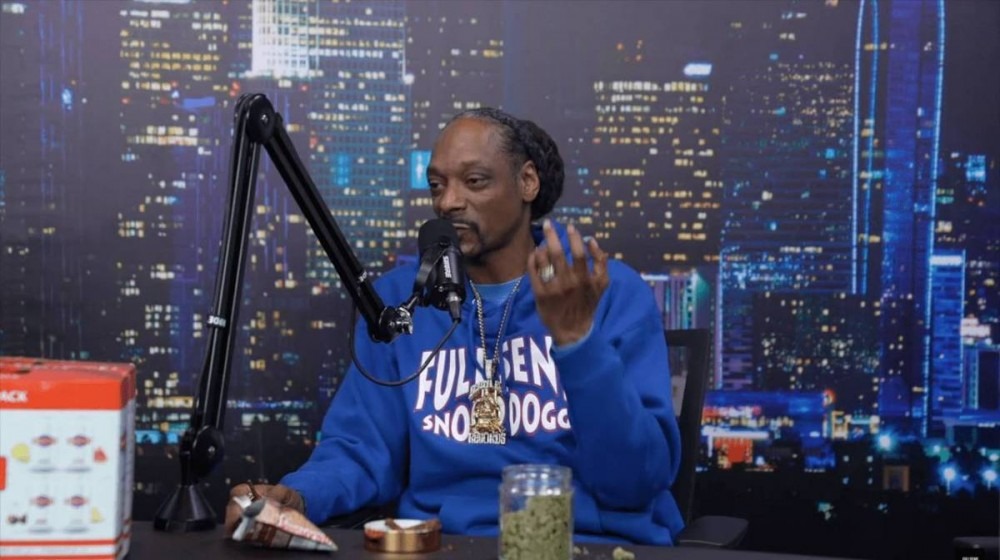Saba Is Relishing The Few Good Things
By Grant Sharples
In 2018, the Chicago-born rapper Saba released his breakthrough sophomore album, Care For Me. It was a poignant exploration of grief, life, and innocence, built on piano-driven compositions that belied Saba’s trademark rapid-fire delivery and laser-sharp focus. The record rightfully earned him a bigger audience, which materialized in the form of year-end accolades and a level-up from clubs to theaters, but he doesn’t want to rest on his laurels.
“One of our goals was to make the anti-Care For Me,” Saba explains to MTV News. Working alongside co-producers daedaePIVOT and Daoud, Saba frequently referenced his previous album in terms of what not to do for its follow-up. “It’s like, ‘Alright. The last album was great. Let’s never mention it ever again!’”
His third LP, Few Good Things, is remarkably different from his previous work. The album’s lead single, “Fearmonger,” is notably more ebullient than the somber aura that permeated this record’s predecessor — the same downbeat energy that made it so gripping and beloved. Saba attributes this radical change to personal growth.
“You’re a different person than the person you were five years ago,” Saba says. “My thing, especially with my fans and stuff, I feel like we have an understanding that I’m allowed to do that. That’s a blessing, and I’m super grateful for it.”
As the album’s title insinuates, Few Good Things is about appreciating what you currently have, however little it may be, rather than lamenting what you don’t. He uses this as a larger lens to explore legacy, poverty, and family. Toward the record’s denouement, he reinforces returning to his origins in the title track’s chorus: “We went back to where we start from / Not the only one,” he sings.
Saba spoke with MTV News about Few Good Things, what he learns from his collaborations, being inspired by photographer Gordon Parks, and more.
MTV News: Few Good Things feels like a thesis statement of sorts on your childhood, personality, and family. What were you exploring lyrically?
Saba: When I set out to make projects, a lot of times, going into it, it’s always the same thing: Where are you right now in life? I feel like it’s simple when you say it like that, but in practicality when you actually try to convey that, it becomes this never-ending cycle of emotion, thought, and feeling. It just becomes harder to convey. That becomes the goal. My last album being four years ago, that’s where I was four years ago, or five years ago, really. A lot has changed in the past four years, not only in my life but in the world. When I listen to this album, this is what I was thinking at this time. It’s honest and how I feel; there are contradictory statements. I let them ride. There are songs when you listen to, you’re like, “How is this on the same album?” This is what I have to offer. This is what I believe in and think, and it’s just honest. That’s it.
MTV News: On this album, you worked with everyone from Krayzie Bone to Smino to Day Wave. How do your collaborations inform your own writing?
Saba: Generally, I even talked to Smino about it, we’re fans of rap. You play in the NBA for 20 years if you’re lucky, and then you get a job talking about the NBA. That’s us. We have these conversations. We understand rap at a scientific and analytic level. We could talk about rap for seven hours straight and not be tired of talking about rap. We really love this shit. So when I talk to Smino about working with him, he’s got the same goal that I got: He wants to have the better verse!
On my albums, I always welcome and encourage that type of energy because that’s the whole point of the collab. It’s about bringing people into the world that you’re creating sonically and having them fit right in and shine and sound comfortable. I’m always welcoming of that energy. But Smino is easily one of my favorite people to work with for that reason. I know that he’s going to take it seriously and treat it like his own song. He also writes with me in mind, like, “I know you’re going to rap well, so I have to rap even better.”
MTV News: With this album, what were the musical or non-musical inspirations?
Saba: When I think about the art around the album, I was very inspired by Gordon Parks and how he photographs Black people. I wanted to make sure that the artwork was that: artwork. Like, this is art. I feel really confident in how the cover art has been helping to shape the story, so that was a big influence. I think production-wise, the influence is more in the experience than actual records or other artists.
But the influence on this album was so much like, how this shit got made when nobody was making anything. We had to pull this album from the depths of no inspiration, no influence, nothing going on. We’re in the fucking bubble of the quarantine, and we’re just at home playing video games all day. The inspiration comes from the experience of going through all of this shit that’s talked about on the album.
MTV News: How do you feel about the upcoming tour?
Saba: I’m excited. It’s really the state of the world where my nervousness lies. Are we gonna be able to tour? I don’t know. A lot of artists, myself included, feel most comfortable on stage. This is where we found ourselves, on this stage. Having that taken away from us, 2020 was really tough because there were moments when I just didn’t feel like myself. When I think of all of the crazy-ass shows and crowds, it was almost like I was just thinking of someone else’s life because I was sitting here playing games and watching TV all day. I had no recollections of fucking Lollapalooza or anything like that! I’m purely excited to feel like myself again when it comes to actually getting on stage and performing new music, seeing new fans.
MTV News: What do you hope people take away after listening to this album?
Saba: I hope that people have a conversation after they hear the album. Just talk about it in whatever way you see fit. It’s time for the talk to begin. We are talking about uncomfortable things in some of these songs. I had a lot of talks with my friends even, working on this album. It’s so easy to avoid a lot of this shit. It’s like the elephant in the room almost. More than any success indicator I could really give you, I think it’s time for the talk around the album to change. I hope people spend time with it. I hope people respect the musicians, the artists, assume we meant everything that we said, we meant every production choice we made. Assume we did everything we wanted to do. Through that, the dialogue around our art will be a step in the right direction.
